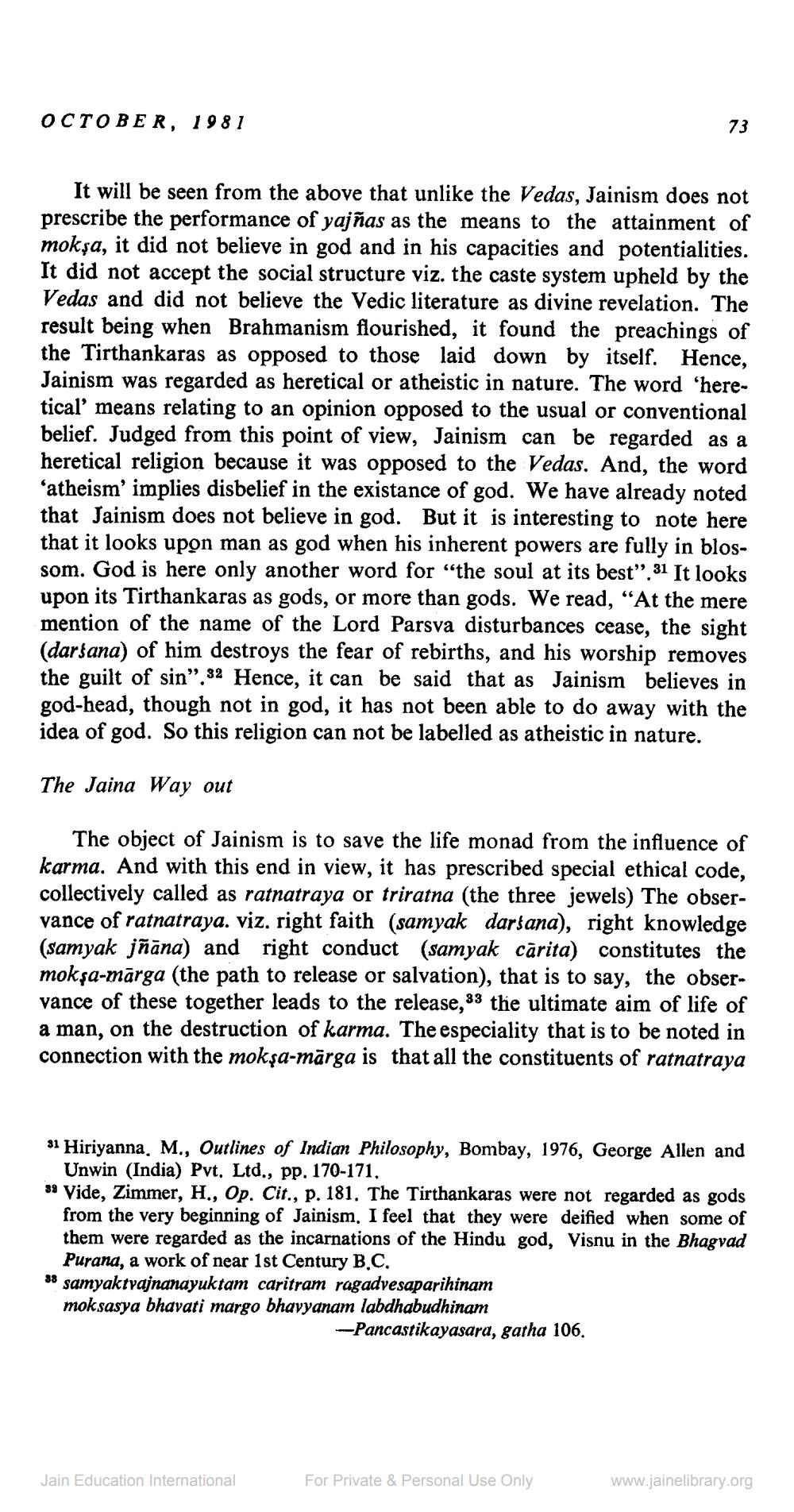________________
OCTOBER, 1981
It will be seen from the above that unlike the Vedas, Jainism does not prescribe the performance of yajñas as the means to the attainment of mokşa, it did not believe in god and in his capacities and potentialities. It did not accept the social structure viz. the caste system upheld by the Vedas and did not believe the Vedic literature as divine revelation. The result being when Brahmanism flourished, it found the preachings of the Tirthankaras as opposed to those laid down by itself. Hence, Jainism was regarded as heretical or atheistic in nature. The word 'heretical' means relating to an opinion opposed to the usual or conventional belief. Judged from this point of view, Jainism can be regarded as a heretical religion because it was opposed to the Vedas. And, the word 'atheism' implies disbelief in the existance of god. We have already noted that Jainism does not believe in god. But it is interesting to note here that it looks upon man as god when his inherent powers are fully in blossom. God is here only another word for "the soul at its best", 31 It looks upon its Tirthankaras as gods, or more than gods. We read, "At the mere mention of the name of the Lord Parsva disturbances cease, the sight (darsana) of him destroys the fear of rebirths, and his worship removes the guilt of sin".s2 Hence, it can be said that as Jainism believes in god-head, though not in god, it has not been able to do away with the idea of god. So this religion can not be labelled as atheistic in nature.
32
The Jaina Way out
The object of Jainism is to save the life monad from the influence of karma. And with this end in view, it has prescribed special ethical code, collectively called as ratnatraya or triratna (the three jewels) The observance of ratnatraya. viz. right faith (samyak darsana), right knowledge (samyak jñāna) and right conduct (samyak carita) constitutes the mokşa-marga (the path to release or salvation), that is to say, the observance of these together leads to the release, 33 the ultimate aim of life of a man, on the destruction of karma. The especiality that is to be noted in connection with the mokşa-marga is that all the constituents of ratnatraya
31 Hiriyanna. M., Outlines of Indian Philosophy, Bombay, 1976, George Allen and Unwin (India) Pvt. Ltd., pp. 170-171.
33 Vide, Zimmer, H., Op. Cit., p. 181. The Tirthankaras were not regarded as gods from the very beginning of Jainism. I feel that they were deified when some of them were regarded as the incarnations of the Hindu god, Visnu in the Bhagvad Purana, a work of near 1st Century B.C.
38 samyaktvajnanayuktam caritram ragadvesaparihinam moksasya bhavati margo bhavyanam labdhabudhinam
73
Jain Education International
-Pancastikayasara, gatha 106.
For Private & Personal Use Only
www.jainelibrary.org




